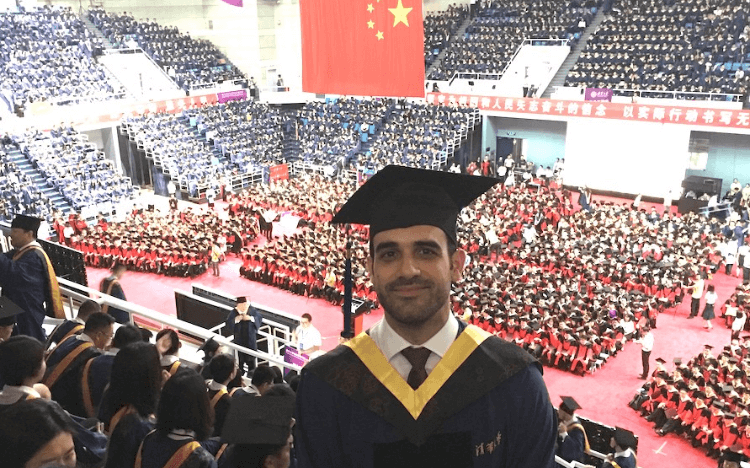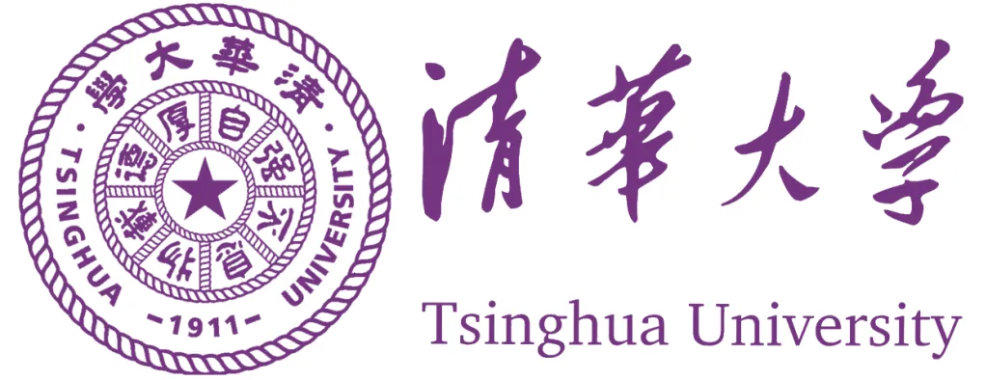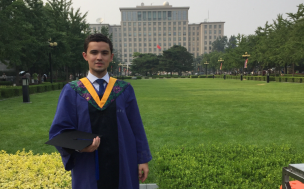For Paolo, it was the Tsinghua-MIT Global MBA Program, a collaboration between Tsinghua University School of Economics and Management (Tsinghua SEM) in Beijing and MIT Sloan, which enabled him to make the triple jump—changing industry, function, and location—and led the way to a consulting job at Volkswagen (VW) in China.
Without the MBA, he says, it wouldn’t have been possible.
MBA—Consulting

From growing up in a small town in Sardinia, Italy, Paolo embarked on an international career, working in marketing for six years for a food and beverage company in Paris. As a brand manager, he focused most of his time on the Middle East and North Africa (MENA). But he soon realized he wanted more experience of the East.
“With China becoming more and more important, I thought: Am I going to do an MBA in one of the thousand schools in Europe or the US, or am I going to be different?” Paolo recalls. “Coming to China and doing an MBA here was a way to stand out.”
Paolo chose Tsinghua, a university with a great reputation in China, but through its philosophy of China roots, global vision—as well as opportunities for international exchange and MIT professors teaching on the MBA—is also well connected to the West.
It was tough leaving family and friends behind in Europe, Paolo says, but Tsinghua’s huge campus—40,000 people including faculty and students—gives you a solid base to meet new people and build a new life.
“Every day here, you’re confronted with new ways of thinking and doing things. The Chinese friends you make on your MBA; these are the people who are able to translate the Chinese world for you.”
Paolo knew he wanted to use his MBA to change job, build a more solid understanding of business across areas like finance and accounting, and develop a generalist profile. These ambitions, he says, led him towards consulting.
How an MBA prepares you for management consulting

The Tsinghua MBA, Paolo explains, is a personal experience. There’s the core MBA curriculum, covering management fundamentals, analytics, soft skill development, and business in China. Then, by selecting your own MBA elective courses, you can specialize in any area you like, crafting the program to meet your own career goals.
Top management consulting firms hire MBA graduates because the degree prepares them for the job. From the Tsinghua MBA, Paolo says he studied countless case studies, learned different theoretical frameworks and processes, and developed a clear understanding of what it means to be a management consultant.
Through Tsinghua’s Career Development Center, which helps foreign students find jobs in China, Paolo was first introduced to VW at a careers fair.
“I’d never thought about approaching VW before,” he says. “The career service helped me build a clear understanding of the job I would do at VW as well as in other jobs. I came out of the MBA with four-to-five job options. I had two I was strongly considering, and I think I made the right choice!”
Paolo first landed a job in strategy at VW before becoming an internal management consultant. He works mostly with top management inside the organization, seeing what his team can solve before they go to the likes of Bain and McKinsey.
The interview process for getting jobs in consulting is notoriously tricky. “You get a couple of case studies,” Paolo explains. “You have to show a structured way of thinking. The MBA helped me build this knowledge.
“The MBA is also useful because it legitimizes a career change,” Paolo continues. “If you don’t have an experience like an MBA, it’s very difficult to go from being a brand manager in FMCG focused on North Africa and the Middle East to saying, ‘I want to work as a consultant in China’.
“Having Tsinghua on your CV is also a very big plus. It’s even embarrassing sometimes! When you study at Tsinghua in China, people are like ‘wow!’—they really admire you. Outside China, where Tsinghua is maybe less known, that’s where the MIT name kicks in.”
How to get management consulting jobs after your MBA

Paolo describes his role at VW as a typical consultant job. His team are tasked with solving complex problems within the organization; look to address them through research, interviews, and workshops; and reorganize the results of their work into simple, actionable recommendations.
At the VW headquarters in Germany, teams of consultants work on different functions within the organization. In the China office, Paolo works in a smaller group, meaning he gets to work across the organization, from HR to operations. “Sometimes I even forget I work in car industry!” he smiles.
What advice does Paolo have for MBAs who want to work in management consulting? “The first thing is to be sure you want to do it,” he says.
"Tailoring your MBA towards a management consulting job requires a lot of trade-offs, so you better know what you are doing, and what you would like to learn, or you will end up wasting time and losing focus.
“The Tsinghua MBA gave me a lot of things I was not expecting,” he continues. “I met Satya Nadella and Mark Zuckerberg. There were professors from Harvard, Fortune 500 CEOs, and Nobel Prize winners coming to give conferences.
“The MBA is going to give you a lot of opportunities, but you cannot do everything. At some point you have to choose. Use the MBA to figure out what you want to do, and focus on it.”








